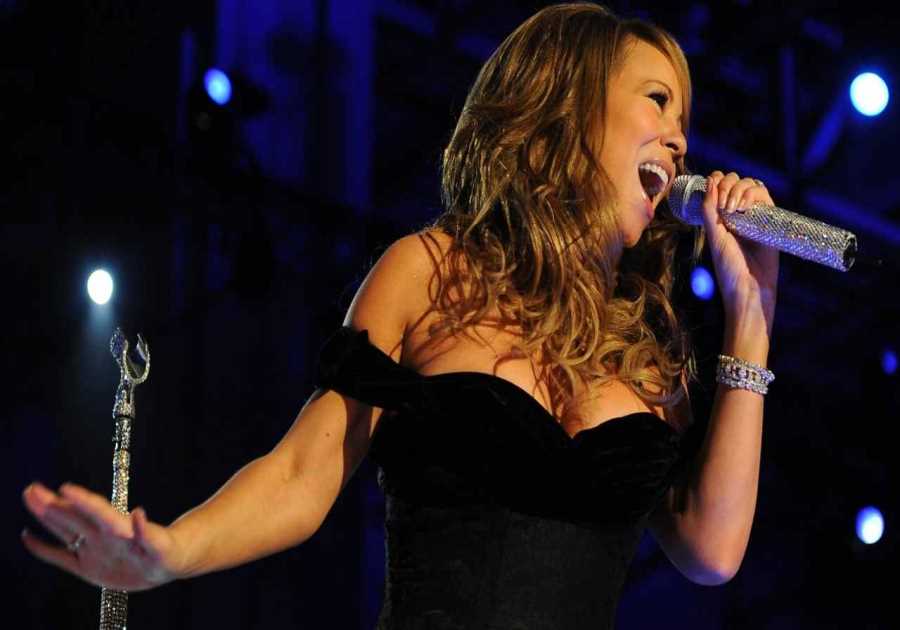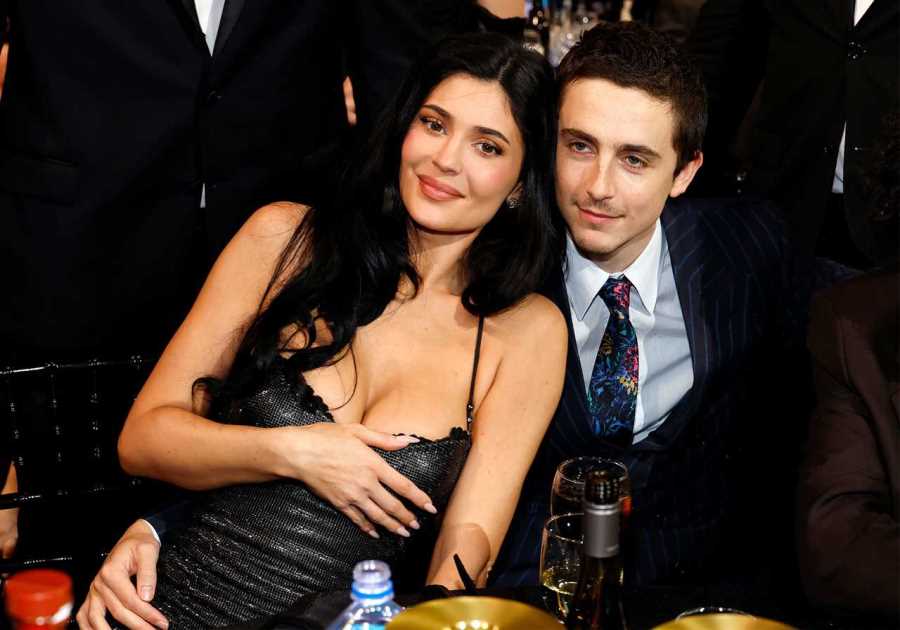On Sunday, the two NFL MVP favorites, Baltimore Ravens quarterback Lamar Jackson and Buffalo Bills quarterback Josh Allen, will face off to determine whose team will compete in the AFC championship. The two men have been linked throughout their careers, but especially this season, as the debate over who should be MVP has become about more than just on-field performance. The Allen-Jackson rivalry exists mainly because the former, who is white, and the latter, who is Black, have been pitted against one another. And that’s largely been due to the racialized nature of the quarterback position itself and an overall political climate that uses athletes to further racial (and racist) narratives. Sadly, the winner and loser of this weekend’s game won’t do much to quell the noise and the nonsense.
To understand how we got to this point, one must understand how the quarterback position has become the most politicized position in sports.
There’s been a long history of Black quarterbacks struggling to gain respect in the face of racism and double standards about their abilities behind center primarily because of the idea that the position requires a certain level of intellect to execute — QBs have to study plays, assess coverages and think on the fly. Black quarterbacks have had to struggle with stereotypes about their intellect as a barrier to getting into the position in the NFL. Just look at the classic case of Warren Moon, who was the MVP of the Rose Bowl in 1977 but didn’t get invited to the combine and had to play in the much more open-minded Canadian Football League before joining the NFL.
Or look at quarterbacks like Kordell Stewart, who got asked to play wide receiver and running back, more traditionally athletic and dangerous positions than quarterback, when he entered the league. Or listen to the commentary of someone like Rush Limbaugh, who infamously claimed that Donovan McNabb was given a pass for his poor start to a season because the NFL “has been very desirous that a Black quarterback do well.” McNabb, of course, would go on to lead his team to a Super Bowl.
The story of race and the quarterback position goes beyond anecdotes. The research backs it up. A 2015 study showed that Black quarterbacks were twice as likely to be benched after a subpar performance than their white counterparts. An analysis of NFL play-by-play shows that commentators tend to describe white QBs as intelligent and Black QBs as innately more athletic.
As a result of all these factors, the Black quarterback has come to represent more than just a position on the field for Black folks. I grew up cheering for two things in the NFL: my home team winning a Super Bowl, and if that doesn’t happen, we can at least get a Black quarterback because a Black quarterback represents a rebuffing of the stereotypes and discrimination that plagued the position since its inception.
That’s where Lamar Jackson comes in.
Jackson has faced some of the issues that have traditionally befallen Black quarterbacks. Despite his collegiate success and his measurables being on par with the other quarterbacks in his 2018 draft class, Jackson wasn’t drafted until the end of the first round. Former Colts GM Bill Polian also echoed old stereotypes by suggesting Jackson switch to wide receiver at the beginning of his career. These obstacles only endeared Black people to him more as we wanted to see him prove the persistent stereotypes wrong.
There’s another reason Jackson has developed such an emotional connection to Black fans: he represents a type of Black quarterback and athlete that has been much-maligned, even in contrast to other prominent Black quarterbacks who are his contemporaries, namely Patrick Mahomes. The Chiefs quarterback has been the NFL’s golden child since he first made his start for the team, racking up three Super Bowls and two MVPs. He’s deserving of being the face of the NFL. But Mahomes also has the pedigree and background suited for that success: His father, Pat Mahomes, Sr., was a major league pitcher. Mahomes came from money. He’s also light-skinned with curly hair. He has a white mother and a white wife. He speaks like he’s been media-trained and entered the league prepared to be a pitch-man for any product available. In other words, he’s palatable to middle American audiences even as a Black man, especially one standing on the shoulders of Black quarterbacks who paved the way for him to make it in the league.
Lamar Jackson is something different. He wears platinum grills to the field. He talks with a deeply southern Florida accent. He doesn’t have superstar parents or a one-up to success. Jackson had to get it out the mud. And when he chose to eschew conventional agents and have his mother represent him, it became especially contentious while he was renegotiating his contract with the Ravens a couple of years ago. Also, his running game looks more like the Michael Vicks of the quarterback world, quarterbacks who have traditionally been associated with athleticism over throwing accuracy. Which is a major reason Jackson’s pocket passing — a trait generally associated with “traditional” quarterbacks — has always been in question despite the fact the stats have long proven he is as accurate as anyone in the league. So when commentators say that he’s not “quarterbacky” enough, it comes with added scrutiny because it’s pulled from a history of assumptions about players who look and play like Jackson and are far removed from the actual product on the field.
It’s also important to note that Lamar Jackson’s emergence as one of the great NFL quarterbacks came when the league and the country were at a crossroads. Lamar Jackson emerges at a time when so many of the great quarterbacks are Black. An era that’s post-Brady/Brees/Rodgers/Rothelisberger/Manning. Now, the aforementioned Patrick Mahomes and Jackson, in addition to Jalen Hurts and others, are as prominent. Furthermore, Jackson’s MVP season came in 2019 on the eve of a countrywide racial reckoning where arguments over representation, who deserves what in America and a tug-of-war over racial tensions spread across the nation with every protest.
And that’s where Josh Allen comes in.
Allen, who was drafted 7th in the 2018 draft — the same one as Jackson — is in many ways the opposite side of the Lamar Jackson coin. He represents another angle of how the quarterback position gets stereotyped. His playing style, ironically, mimics that of the Black quarterbacks who came into the league in years past. He is an uber-athletic QB with a cannon for an arm. At 6’5” and around 240 pounds, Allen is an athletic unicorn who reminds me of Steve McNair and a quicker Donovan McNabb in sheer physicality. Of course, Allen is rarely compared to these quarterbacks. He rarely gets questioned about his pocket presence. And no one questions if he is “quarterbacky” enough, even though he and Jackson are one and two in career quarterback rushing yards in the postseason.
Allen’s introduction to the world came with its own racial reckoning. As he was entering the draft, old tweets from when he was in high school surfaced. In the tweets, Allen used the N-word while quoting rap lyrics. He’d apologize profusely and talked to Stephen A. Smith about how much he regretted the comments.
This moment would follow Allen for the early part of his career, especially as he and Jackson were battling to see who was the best quarterback in the draft class. It’s a perfectly American story perfect for another Great Race Debate: a formerly N-word-spouting white QB and a Black quarterback fighting against stereotypes. As is often the case, Allen would find another following beyond Bills fans and football fans who are in awe of his on-the-field skillset: he’d become the star who overcame the dreaded and mythical cancel culture. Allen, who, again, has done all he can to apologize for his stupid tweets, was still being used as an example of a white man who couldn’t be stopped by people who wanted to “cancel him” for old social media posts. Not to mention the following from people who automatically want to defend anyone who’s accused of or even perpetuates racism. These fans don’t actually care about Allen’s true greatness, which there is plenty to praise. They care about what it means to stand by someone who even has a morsel of potential to offend marginalized groups.
In 2024, Allen and Jackson’s rivalry took over a life of its own at yet another culturally momentous moment. The two were in their bags all year, becoming the first duo in NFL history to face each other in the playoffs after having more than 40 touchdowns and fewer than 10 interceptions in a regular season. For the first half of the year, Jackson was the clear MVP. Then Allen cobbled together some colossal performances against the likes of Detroit and Kansas City and seemed like the odds-on favorite. Since then, the two have been neck-and-neck. Really, you can’t go wrong with either as MVP, as they each have their own compelling arguments (Allen’s supporting cast vs. Jackson’s divisional opponents and strength of schedule, etc.). And the subsequent playoff matchup should be a celebration of the year they’ve each had. But Jackson’s possible third MVP candidacy comes at a time where “DEI” has become the pejorative du jour, a thinly veiled slur to echo Limbaugh’s 20-year-old sentiment that minorities et al. get awards and jobs they don’t deserve. Allen, then, represents a defiance of the “DEI” award. He’s the white star who overcame cancel culture and truly earned the type of awards that white men have been robbed of in recent years.
It’s all silliness and noise, of course. And it’s all another way that we all bring our racial baggage to sports: not unlike Caitlin Clark vs. Angel Reese, Magic Johnson vs. Larry Bird or any time a white boxer is in the ring with a Black boxer. Unlike those matchups, Allen and Jackson won’t share the field simultaneously. They won’t exactly square up one-on-one. And they haven’t indicated that there’s any real rivalry between the two.
“In the history of football, I’ve never really played against another quarterback,” Allen said this week. “I’ve played against their defense.”
The comment reminds us of what’s actually happening between the two men: They are battling to see who is the best quarterback not named Patrick Mahomes for a chance to dethrone a dynasty. And they remind us that the history of the quarterback position makes it impossible for Josh Allen and Lamar Jackson to exist in a vacuum without the weight of society’s baggage on their shoulders.
-----------------------
By: David Dennis Jr.
Title: How Lamar Jackson vs. Josh Allen became a rivalry of our own creation
Sourced From: andscape.com/features/lamar-jackson-vs-josh-allen-nfl-playoffs/
Published Date: Sat, 18 Jan 2025 16:24:26 +0000






